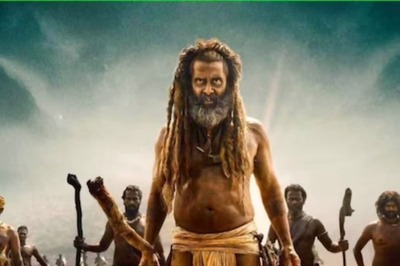
views
BERLIN: Armin Laschet is fast emerging as the frontrunner in the race to be the ruling Christian Democrats’ (CDU) candidate for chancellor in Germany’s federal election next year after Angela Merkel stands down, two dozen party sources say.
Laschet, the premier of Germany’s most populous state, North Rhine-Westphalia, who presents himself as the Merkel continuity candidate, is slowly building a majority among the CDU’s 1,001 voting delegates ahead of December’s vote on the party leadership, the sources say.
His main CDU rival, plain-speaking businessman Friedrich Merz, remains more popular among voters, but Laschet hopes his own credentials as a tried-and-trusted manager with centrist views will more than compensate for his lack of personal charisma and catapult him into Germany’s top job.
“(Laschet) is currently considered the most likely winner of the internal race,” said one CDU lawmaker, speaking on condition of anonymity.
Party sources said the new CDU leader will likely also be the chancellor candidate for the party and its Bavarian sister, the CSU, at the next election, which is due by Oct. 24, 2021. Germany has never had a chancellor from the CSU.
Laschet has been boosted by local election wins last month in his home state and also by a resurgence in support for Merkel, whose competent handling of the coronavirus pandemic has showcased her managerial style of leading from the political centreground.
In an Aug. 18 visit to North Rhine-Westphalia, Merkel said Laschet had “the tools” to run for chancellor — the closest she has come to endorsing any of the contenders, who also include foreign policy expert Norbert Roettgen.
His centrist views mean Laschet would be better suited to negotiate a possible future coalition government with the resurgent Greens, the CDU sources say. Opinion polls suggest the Greens are the most realistic coalition partner for the CDU/CSU.
STEPPING ONTO WORLD STAGE
Laschet, 59, has also been energetically polishing his international profile in the past eight weeks, holding private meetings with French President Emmanuel Macron – his third this year – and Pope Francis, and visited a refugee camp in Greece.
He has also visited Israel and met EU leaders in Brussels this year.
A French speaker of Belgian descent, Laschet has been particularly keen to cement relations with Macron, with whom he would have to work closely as chancellor in steering the European Union through some daunting challenges ahead.
At his last meeting with Macron at the presidential Elysee palace in Paris on Sept. 8, Laschet broke the ice by talking about Lebanese singer Fairuz, of whom he and the French leader are both fans, sources present at the meeting said.
The two men also discovered a shared admiration for German artist Anselm Kiefer, who lives near Paris.
In an honour reserved for special guests, Macron invited Laschet into the Elysee gardens, where they discussed Lebanon, Turkey and tensions in the eastern Mediterranean.
“We’ve always found he has been supportive of the president’s proposals,” a French diplomat said.
Laschet’s spokesman said: “Despite all differences in detail, Armin Laschet has always welcomed and supported President Macron’s impulses for the European unification process.”
At the Munich Security Conference in February, Laschet apologised on behalf of the German government for taking “too long to react” to French calls for EU reform.
But some in the CDU fear he may end up being led by Macron.
“I’ve told him he has to be clearer about what he wants in foreign policy,” said one senior lawmaker.
OPPONENTS’ WEAKNESS
However, his globe-trotting and his francophilia have done Laschet’s domestic profile no harm.
He can count on the support of at least two other CDU state premiers, the party sources say. Together, these and his own state account for more than 40% of the delegates to the Dec. 4 party congress that will decide the leadership.
In the southwestern state of Baden-Wuerttemberg, too, some delegates are starting to lean towards Laschet and away from his main rival Merz, whom they backed heavily in a 2018 contest for the party chair, a senior party official said.
Merz, 64, wants the CDU to distinguish itself more clearly from rival parties after sharing power with the left-leaning Social Democrats under Merkel. His opponents see him as a man from a bygone era.
Contacted for this story, Merz told Reuters: “Two months before the party conference, I see my baseline position as extremely positive. But a lot can still happen in two months.”
Roettgen, 55, told Reuters: “The current situation is that each of the candidates has a chance of being elected.”
Not everybody in the CDU was happy with the choice on offer.
“I’m not satisfied with any of the three candidates,” said one senior CDU lawmaker, adding that he preferred Health Minister Jens Spahn, who backs Laschet.
“Spahn is loyal, Laschet would have to ask him to run for chancellor. He won’t,” the lawmaker lamented.
Political scientist Gero Neugebauer was also unimpressed: “Laschet’s strength is currently the weakness of his opponents.”
(Additional reporting by Michel Rose in Paris and Sabine Siebold in Berlin; Editing by Gareth Jones)
Disclaimer: This post has been auto-published from an agency feed without any modifications to the text and has not been reviewed by an editor
















Comments
0 comment